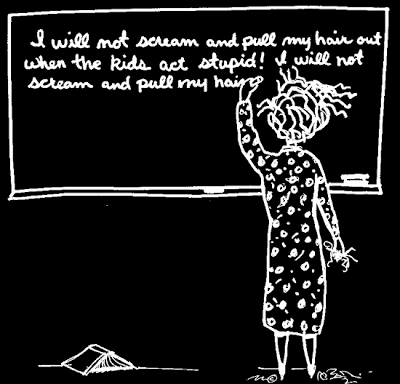Consider the following two headlines:
“Optimise Your Basal Metabolism with Product X – The World’s Most Technologically Advanced Nutritional Supplement”
Consider the following two headlines:
“Optimise Your Basal Metabolism with Product X – The World’s Most Technologically Advanced Nutritional Supplement”

The platforms are free but the time and effort producing them isn’t (courtesy of zenfolio)
Let’s face it. We are swamped by content.
What used to be physical has now invaded our virtual and mobile spaces. With a gazillion blogs, videos, photos, podcasts, slide presentations, and so on, consumers are literally “consumed” by data.

Can you write in a compelling fashion? Are you able to persuade your marketing prospects with your prose?
In many marketing and sales professions, being able to write well gives you a significant edge over others.
Wordsmiths are highly valued in most organisations – especially if your words can magically transform complex and arcane concepts into attractive ideas exhibiting Zen-like simplicity.
I am a writer. Wordsmithing is my craft.
I eat, pray and love the written word. My spare moments are spent reading, writing, or listening to words that bring knowledge, inspiration, comfort, wisdom and joy.

Do you consider this a good slogan?
In the world of branding and advertising, developing a catchy slogan or tagline is probably considered the Holy Grail of the craft. They can be found in practically anything and everything, from shampoo to milk powder, movies to museums, cities to churches, and cars to condos to credit cards.
Almost any organisation or institution worth its corporate salt would purvey these one or two liners, in the hope of raising mindshare, deepening heartshare, improving top-of-mind recall, and of course growing brand equity.
If this outdoor advertisement doesn’t catch your eye, I suppose nothing else will. No prizes for guessing what product they are pushing for! What’s more interesting though is how a seemingly simple advertisement like this follows the age-old rule of AIDA. In advertising parlance, this means Attention, Interest, Desire and Action.
1) Attention – Obviously a headline like this written in bright red on a yellow background catches one’s attention. The sentence is also provocative and uses one of the most attention grabbing word in the world (not sex but) – love.
2) Interest – In this case, the same headline also helps to stir one’s interest by using the phrase of “Making Love” and “Doing It…” which piques one’s curiosity.
3) Desire – Instilling desire (in those who are already naturally inclined) is done by weaving in words like “Longer” and “Try” which are positive building words. In other words, you can have your cake and eat it too.
4) Action – This of course is where the rubber hits the road (no pun intended), and the call for action is conveyed through the word “SMS ‘Try’ 1800 711 711”. When one is outdoors without access to the internet or pen and paper, the fastest way to do so is through SMS. And the sensitivity of the subject is such that people will probably find it easier not to have to speak to a ‘live’ person about wanting to “do it longer”!
Are there ways to stand out from the 133 million blogs which are tracked by Technorati (and probably a gazillion more which are untracked)?
Can your blog be a favourite bookmark for the thousands of online surfers?
How can one distinguish and differentiate one’s online real estate against the competition?

Courtesy of Hale Popopi
Came across this brilliant piece of copywriting advice from Copyblogger and how the “Rule of three” works universally in capturing people’s attention. It is simple, effective and oh so true.
Here’s a quote from the post:
…information presented in groups of three sticks in our heads better than other clusters of items. For example:
“Life, liberty, and the pursuit of happiness”
“Government of the people, by the people, for the people”
“Friends, Romans, Countrymen”
“Blood, sweat and tears”
“Location, location, location”
“Father, Son and Holy Spirit”
“Faith, Hope and Charity”
“Mind, body, spirit”
“Stop, Look and Listen”
“Sex, Lies and Videotape”
“I came, I saw, I conquered”
Perhaps the next time you are tasked to write an advertisement, a speech or powerpoint presentations, see if you can dissect them into 3 key points.
Copyblogger, one of the world’s most popular for writing aficionados like yours truly, featured this excellent post on writing effective copy by Brian Clark. I have read plenty of copywriting tips in my lifetime, but this is probably one of the best I have come across. Read it, apply it to your writing, and voila! Watch those customers come queueing at your doors…. (if only it was this simple)
Is what you’re writing of interest to the reader? Does it solve a problem they have and add value to their lives? If not, nothing else you read here matters.
Likewise, nothing else matters if your prospective reader never makes it past the title or headline. Your content could be amazing, but if no one is compelled to invest the time to read based on a boring or vague headline, all is lost.
The purpose of the headline is to get the first sentence read, and each subsequent sentence needs to keep the reader rolling towards to the close. The momentum you create with your opening can make your job easier the rest of the way.
Are your transferable lessons easily digested via bullet points and numbered lists? Are you providing compelling subheads that act as encouraging signposts for the diagonal reader to dig in deeper?
Good writing uses transitional words and phrases to help the content read more smoothly. But good copy also uses psychological connectors to persuade and keep the reader engaged. We’ll talk more about that soon.
Orson Scott Card once said that metaphors have a way of holding the most truth in the least space. The same is true of stories, and being highly specific facilitates understanding, holds attention, and enhances credibility in ways that general assertions cannot.
How you close a piece is determined by what you are hoping to accomplish. If you’re not sure what you’re trying to accomplish, you might ask yourself why you’re writing it at all. That actually helps you to determine whether to revamp the content or to put it out of its misery.

Image courtesy of DiscoverySchool.com
I came across this post by Kian Ann recently on the need to write well on the Internet. While crafting some suggestions to him on the comments section, I decided that I might as well expand this into a blog post.
How does one write well? Is there a secret formula that you can apply in order to be a wicked wordsmith?